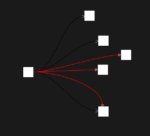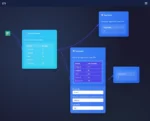Imagine your organization’s data moving through its infrastructure, dynamically assessed, categorized, and effortlessly routed exactly where it’s needed most, without human intervention. This isn’t a futuristic ideal but rather the reality of intelligent data routing based on content analysis. Businesses today face increasingly diverse and massive datasets that can swamp traditional data pathways and overwhelm manual processes. By harnessing advanced content analysis algorithms, organizations can automate decision-making around how data is prioritized, stored, and leveraged—dramatically boosting efficiency, accuracy, and insight alignment. Bridging technology innovations with practical business strategies, intelligent data routing solutions empower your teams and stakeholders to make better decisions faster, efficiently unlocking your organization’s full analytics potential.
Understanding Intelligent Data Routing and Its Importance
At its heart, intelligent data routing refers to using machine learning and content analysis techniques to automatically determine the optimal pathway for any given piece of data entering the system. Instead of relying on manual processes or simple static rules, intelligent routing leverages sophisticated algorithms that analyze data characteristics—such as subject matter, format, sensitivity level, and relevance to ongoing business initiatives—to instantly determine the most effective destination.
The importance of intelligent data routing can’t be overstated in today’s rapidly evolving data-driven environment. Organizations generating or ingesting vast amounts of structured and unstructured data struggle to effectively use it to inform strategic decisions. With content-aware routing, companies transition from reactive data management to proactive strategic operations, ensuring relevant data lands in the hands of decision-makers precisely when they need it. Moreover, this methodology significantly reduces manual workload, cuts latency, and enhances data quality by systematically and consistently applying predefined standards and policies.
Forward-thinking technology strategies, coupled with guidance from an experienced perspective like a trusted data warehousing consulting service, help you implement robust intelligent routing capabilities, efficiently aligning data management practices with organizational goals and regulatory compliance.
The Core Mechanics of Content Analysis-Based Routing
To understand intelligent data routing effectively, it’s crucial to grasp the underlying mechanics of content analysis. Content analysis involves automating data interpretation through technologies such as natural language processing (NLP), machine learning classifiers, and advanced metadata extraction. These technologies examine and classify data content based on various criteria that align with business goals, regulations, and analytics applications.
Machine learning algorithms, in particular, play a central role by processing historical datasets to learn which content attributes correspond to specific routing outcomes. For instance, sensitive information like financial data or personally identifiable information (PII) would quickly route through secure, compliant storage channels, while operational transactional data could flow into channels focused on real-time analytical applications. Effective routing based upon this granular content analysis ensures relevance and security, ultimately providing decision-makers precisely curated datasets.
Practically, organizations can leverage tools such as NLP frameworks, sentiment analysis techniques, classification algorithms, and intelligently trained data rules that can automatically assign priorities. Supporting advanced analytics operations, these algorithms deliver accurate, efficient data pathways to predefined storage systems designed specifically for the nature and purpose of identified content. Integrated platforms like Anaconda data science toolkit significantly streamline the deployment and management of these analytical models.
Fundamental Benefits of Implementing Intelligent Data Routing
The advantages of deploying intelligent data routing based on content analysis extend directly into enterprise agility, data accuracy, and business decision-making. Organizations adopting these advanced methodologies immediately benefit from increased operational efficiency. Automating the routing eliminates the manual labor, reduces human error, and accelerates decision-making by enabling instant contextual data availability at the point of decision.
Furthermore, intelligent routing greatly enhances data quality and precision by consistently categorizing and prioritizing datasets based on explicit content criteria, user scenarios, or regulatory requirements. Such meticulous handling simplifies compliance, reduces the risk of breaches, and ensures auditable tracking of sensitive information.
As data-driven companies continually refine their analytics strategies, intelligent routing bridges efficiencies and innovative insights. Enterprise stakeholders experience the enhanced value of their analytics applications, thanks to incisive, high-quality datasets tailored exactly for analysis tasks. Moreover, content-driven routing complements innovations in data visualization strategies—as explained in this article on the role of color in data visualization—by ensuring relevant datasets arrive prepared for rapid interpretation and clear storytelling.
Real-World Cases: Industry Applications of Intelligent Routing
Intelligent data routing has proven significantly beneficial in various industries. In healthcare, intelligent routing streamlines patient record management by categorizing, prioritizing, and channeling sensitive patient data securely and instantly, resulting in improved patient outcomes and enhanced regulatory compliance.
Financial services organizations also significantly benefit by routing sensitive client or market transactional data securely and quickly. Data routed to advanced analytical engines helps rapidly detect anomalies, prevent fraud, and ensure adherence to regulatory guidelines. Furthermore, intelligent content routing can empower data analytics teams in competitive technology hotspots, such as featured in our article exploring Austin’s growing analytics industry.
Logistics companies utilize intelligent data routing effectively to prioritize supply-chain data, ensuring real-time analytics help streamline operations and decision-making processes. In media and marketing sectors, intelligent routing optimizes and enhances personalization and targeted marketing strategies by automatically categorizing and channeling huge volumes of user-generated and social media data to targeted analytics environments specifically designed to harness and maximize customer insights.
Strategic Integration With Legacy Systems and Emerging Innovations
One practical concern for leaders and technology strategists involves intelligently integrating new data routing solutions within legacy software environments. Fortunately, modern intelligent content routing strategies don’t necessarily require replacing longstanding systems outright when organizations can achieve effective results utilizing strategic integration techniques. Complementary strategies such as those discussed in our guide on innovating inside existing legacy systems are critical in achieving successful implementations without disrupting ongoing operations.
Emerging innovations such as hybrid cloud storage and advanced distributed computing infrastructures also enable seamless integration. IT departments can successfully layer intelligent routing onto existing enterprise systems. Whether adopting complementary strategies in tandem with hybrid cloud, containerization, or microservices architectures, intelligent routing aligns perfectly with modern IT patterns, bridging innovative analytics approaches such as column-oriented databases discussed in our article comparing columnar vs document-based storage performance, into traditional environments efficiently and effectively.
Building Stakeholder Trust and Organization-wide Adoption
Successful deployment of intelligent data routing revolves around organizational buy-in and proper adoption by stakeholders across departments. Ensuring executives, analysts, and operational teams understand intelligent routing, its processes, and benefits is essential to effective adoption and maximizing impact. Effective training sessions and consultative approaches using direct expert-to-stakeholder communications strongly encourage trust in automated data processes. We’ve seen great results from structured 1-on-1 expert sessions to improve technology adoption, tailored to organizational technical understanding and strategic requirements.
By clearly communicating potential benefits—greater accuracy, enhanced compliance, reduced latency, and increased strategic agility—organizations build strong support among stakeholders. Intelligent routing isn’t solely a technological upgrade but a cross-organizational cultural transformation emphasizing data as a dynamic organizational resource.
Ultimately, fostering peer and leadership advocates across the organization ensures intelligent content routes become intrinsic organizational processes, deeply enhancing analytics effectiveness, strategic alignment, and decision timeliness.
Conclusion: Prepare Your Business to Leverage Intelligent Data Routing
Intelligent content-based data routing is a transformational opportunity to redefine the efficiency, accuracy, and strategic direction of your organization’s data handling and analytics practices. As enterprises continue navigating increasingly large and varied data environments, adopting intelligent routing strategies stands out as pivotal to maintaining competitive agility, robust data governance, and proactive analytics usage. Partnering with an experienced and specialized analytics consultancy, like detailed in our overview of the advantages of working with a boutique consultancy, positions your business definitively ahead by leveraging advanced data routing capabilities today and into tomorrow.

























